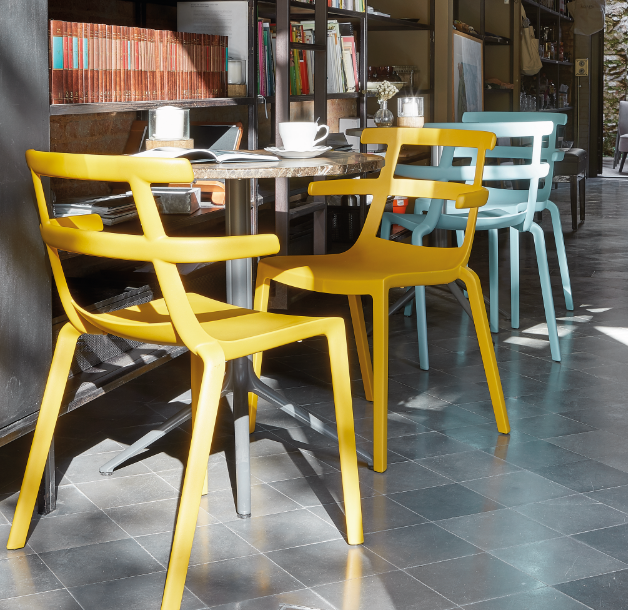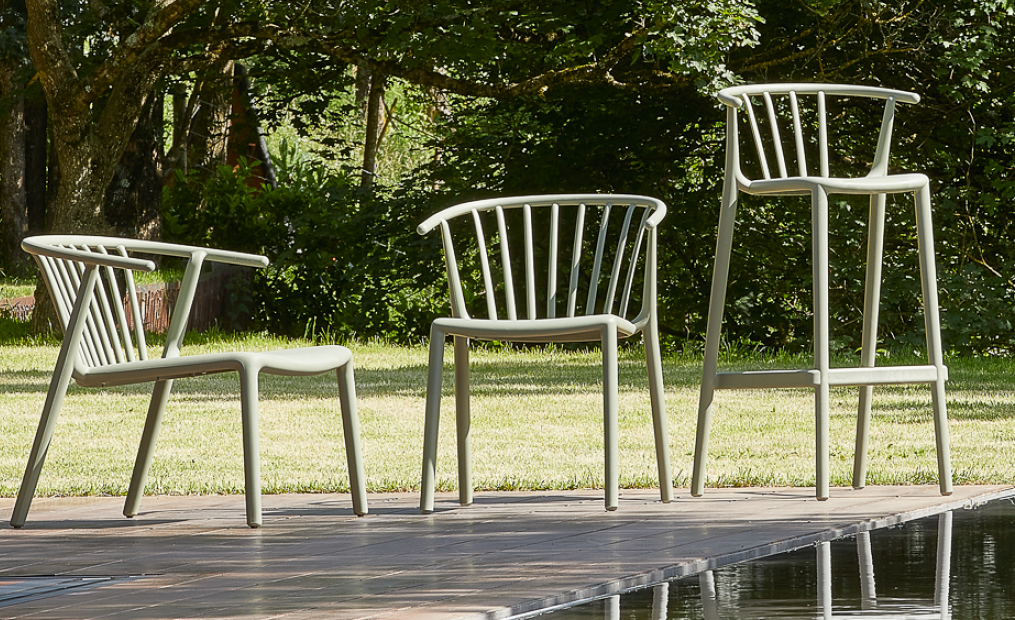Blog
Design is more than just aesthetics. It is a constant pursuit of balance between form and function, a subtle dance between innovation and necessity. And if there is one name that embodies this philosophy in furniture design, it is Josep Lluscà. With a career spanning over 50 years, this Barcelona-based designer has paved a path defined by versatility, ergonomics and meticulous attention to detail. His collaboration with Resol has resulted in iconic pieces—designs that transform spaces without compromising their functional essence.
Iconic designs for Resol
Josep Lluscà has created some of Resol’s most emblematic chairs — designs that meet the demands of the contract and hospitality markets and redefine the concept of contemporary furniture.
Among them, the Tokyo chair stands out, a design inspired by an unexpected source: the torii gates of Japanese Shinto temples. Its lightweight structure and evocative form reflect a pursuit of essentials, a recurring principle in Lluscà’s work. Like a living sculpture, every line in the Tokyo chair has been carefully crafted to maximize comfort and material efficiency, resulting in a piece that is bold, elegant and timeless.
The Woody Chair, on the other hand, offers a reimagined classic. A design imbued with the warmth of wood, but with the strength of glass-fibre injected polypropylene — a tribute to tradition with a nod to modern technology. For Josep Lluscà, designing furniture is about coexisting with people and integrating effortlessly into everyday life without excess or ostentation.


The beauty of functionality
His design philosophy goes beyond appearance; it is an intellectual process in which every detail matters. Ergonomics, material efficiency and sustainability are fundamental principles in his work. For Josep Lluscà, the goal is not to create something new but to improve it. This relentless pursuit of excellence makes his designs for Resol functional and iconic.
In a world where design often veers toward the superficial, Josep Lluscà reminds us that true beauty lies in usefulness — in the comfort that goes unnoticed, in the logic of an object that feels like a natural extension of the body and the space. And it is precisely this sensitivity that defines his legacy.